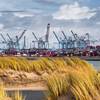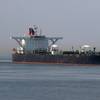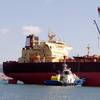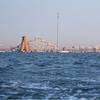GESAMP Guidelines on Plastics in Ocean
The Guidelines for the monitoring and assessment of plastic litter and microplastics in the ocean have been published by the Joint Group of Experts on the Scientific Aspects of Marine Environmental Protection (GESAMP).
GESAMP is a body that advises the United Nations system on the scientific aspects of marine environmental protection.
The new set of publicly-available guidelines for monitoring plastics and microplastics in the oceans will help harmonize how scientists and others assess the scale of the marine plastic litter problem, said a press note.
The guidelines cover what to sample, how to sample it and how to record and assess plastics in the oceans and on the shoreline, including establishing baseline surveys. They include recommendations, advice and practical guidance, for establishing programmes to monitor and assess the distribution and abundance of plastic litter, also referred to as plastic debris, in the ocean.
The guidelines include common definitions for categories of marine litter and plastics, examples of size and shape, how to design monitoring and assessment programmes, sampling and surveys.
Sections cover citizen science programmes - which involve members of the public in marine litter surveying and research. There are detailed chapters on monitoring sea surface floating plastic and plastic on the seafloor.
The guidelines can be used by national, inter-governmental and international organisations with responsibilities for managing the social, economic and ecological consequences of land- and sea-based human-activities on the marine environment.
The guidelines are a response to the hitherto lack of an internationally agreed methodology to report on the distribution and abundance of marine plastic litter and microplastics and directly contribute to the UN SDG Goal 14 on the oceans. Specifically, the guidelines are a response to target 14.1: By 2025, prevent and significantly reduce marine pollution of all kinds, in particular from land-based activities, including plastic debris and nutrient pollution.
The full set of guidelines is available to download free-of-charge from the GESAMP website here.











